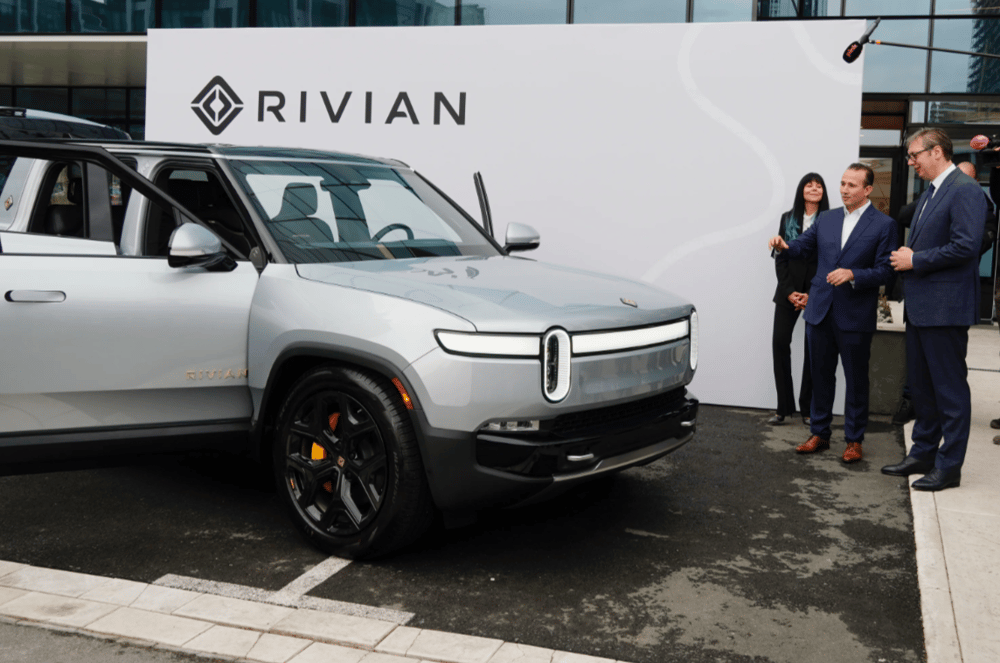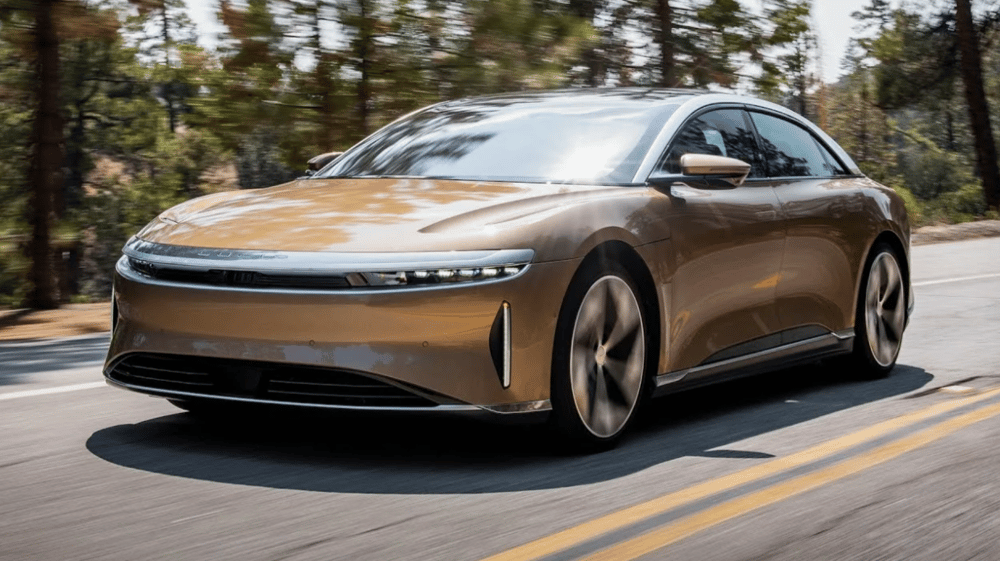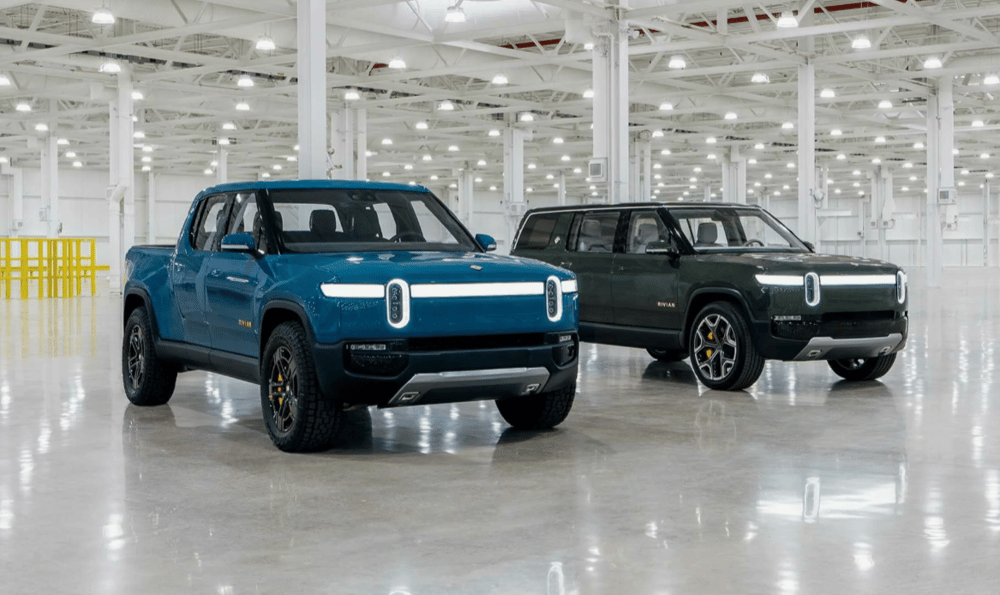Rising Costs and Uncertainty: How U.S. Tariffs are Impacting EV Manufacturers Rivian and Lucid
The electric vehicle (EV) market has been a beacon of growth and innovation, with companies like Rivian $RIVN and Lucid Motors $LCID leading the charge toward a greener future. However, recent developments in U.S. trade policy have introduced a new set of challenges for these companies. Both Rivian and Lucid have raised concerns about rising production costs, driven largely by tariffs on imported vehicles and auto parts. Despite efforts to secure alternative supply chains, the looming threat of increased tariffs has added an extra layer of uncertainty to an already turbulent market.
As EV sales face a slowdown, exacerbated by broader economic instability and shifting consumer sentiment, these tariffs represent yet another obstacle for companies striving to balance affordability with innovation. This article examines how tariffs are affecting Rivian and Lucid, the broader implications for the EV industry, and what steps these manufacturers are taking to navigate the changing landscape.
The Impact of U.S. Tariffs on Rivian and Lucid Motors
Both Rivian and Lucid Motors are particularly vulnerable to the economic effects of tariffs due to their reliance on international supply chains for critical components, such as batteries, chips, and other auto parts. While these tariffs were initially targeted at foreign manufacturers, they are now beginning to affect domestic EV producers as well, raising the cost of production and complicating efforts to scale up operations.

Key Challenges Faced by Rivian and Lucid:
Increased Production Costs: Tariffs on imported auto parts and vehicles directly contribute to rising production costs for EV manufacturers. This is especially problematic for startups like Rivian and Lucid, which are still in the early stages of ramping up production.
Supply Chain Disruptions: Both companies have struggled with supply chain interruptions, including semiconductor shortages and delays in obtaining essential materials. Tariffs further complicate efforts to find alternative suppliers and mitigate production bottlenecks.
Price Increases for Consumers: As costs rise for manufacturers, the inevitable consequence is an increase in vehicle prices. This could make EVs less affordable for many consumers, particularly at a time when economic uncertainty is already leading to a shift in consumer preferences.
Consumer Sentiment and the EV Slowdown
The broader automotive market has been undergoing a period of transition, with rising inflation, interest rates, and economic uncertainty dampening consumer spending. While the demand for electric vehicles has surged in recent years, the global economic environment has caused a slowdown in consumer confidence.
Factors Affecting EV Sales:
Economic Uncertainty: With inflation rates high and the potential for a recession looming, many consumers are hesitant to make large purchases like cars, opting instead for more affordable alternatives, such as hybrid vehicles.
Interest Rates and Financing: Rising interest rates have made financing a new vehicle less appealing for many consumers. As EVs are typically priced higher than traditional vehicles, the impact of rising financing costs is particularly significant in the EV sector.
Shift Toward Hybrid Vehicles: Many potential buyers are moving away from fully electric vehicles and choosing hybrid vehicles, which offer a more affordable entry point into the world of electric transportation while maintaining the flexibility of a traditional internal combustion engine.

Navigating the Future: Rivian and Lucid's Strategies to Adapt
Despite the challenges posed by tariffs and market slowdowns, both Rivian and Lucid Motors have been working to adapt their strategies in order to ensure long-term sustainability. These companies are actively exploring ways to minimize the impact of tariffs, enhance supply chain resilience, and adjust to changing market conditions.
Steps Taken by Rivian and Lucid:
Seeking Alternative Suppliers: In response to supply chain disruptions, both companies are aggressively seeking out alternative suppliers to reduce their reliance on imported parts that are subject to tariffs. By diversifying their supply chains, Rivian and Lucid hope to minimize the effects of the trade barriers.
Reevaluating Vehicle Pricing: To offset higher production costs, both Rivian and Lucid have been forced to raise the prices of their vehicles. While this move could lead to a decrease in demand, it may also help ensure that the companies can continue to operate profitably in the face of rising production costs.
Focusing on Efficiency and Innovation: Both companies are investing heavily in improving the efficiency of their production processes and advancing technology. By reducing manufacturing costs and improving battery technology, they aim to make EVs more affordable in the long run while staying ahead of the competition.
Conclusion: The Road Ahead for Rivian, Lucid, and the EV Industry
As Rivian and Lucid navigate the complex landscape of trade tariffs, supply chain disruptions, and shifting consumer preferences, the future of the EV market remains uncertain. While both companies are actively working to mitigate the effects of tariffs and economic downturns, the industry faces significant headwinds. Increased production costs and reduced consumer demand could stifle the growth of electric vehicles in the short term.
However, the long-term prospects for the industry remain strong, driven by increasing environmental awareness, government incentives, and technological innovation. For Rivian, Lucid, and their peers, success will depend on their ability to adapt to the changing global trade environment while maintaining the commitment to sustainability and innovation that has defined the electric vehicle revolution.















Comments